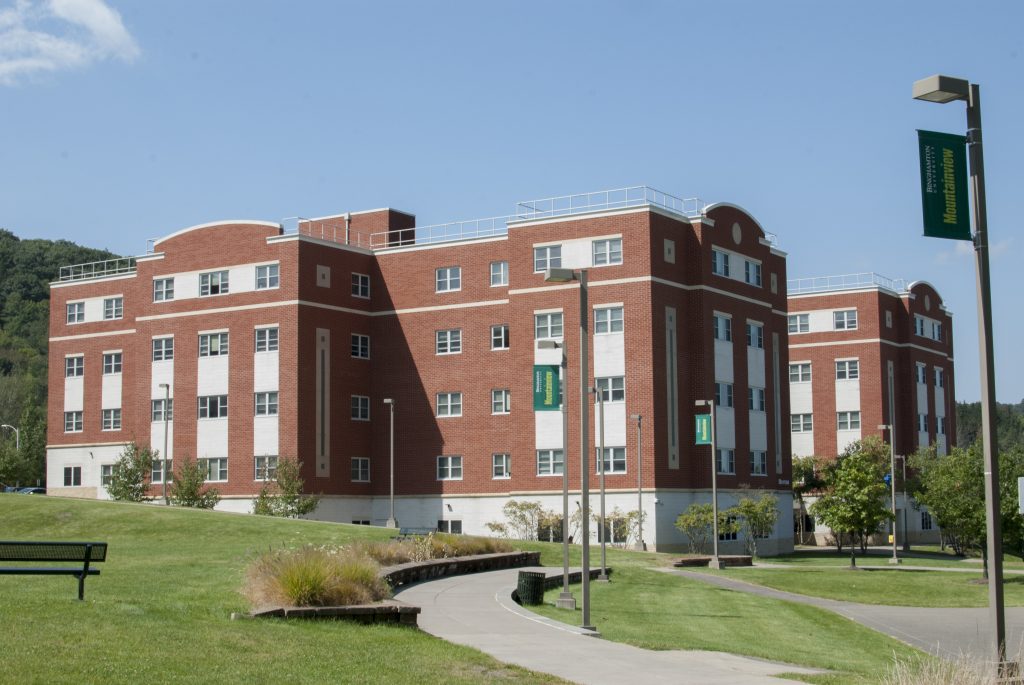
Resident assistants (RAs) are a thing of the past in the Mountainview College living community.
This year, RAs, who used to number two a floor in each of four buildings, have been replaced by one senior resident per floor. According to the Binghamton University Office of Residential Life, the senior resident role places more of a focus on community development than on issues such as discipline. Each building will now also be staffed by student managers from 8 p.m. to midnight ― a role formerly played by RAs.
BU’s administration points toward the pilot program as one of its steps toward creating a holistic on-campus living experience. Students in BU’s youngest living community will have access to original programs meant to promote “high-impact learning experiences.” This philosophy comes directly from BU President Harvey Stenger’s Road Map to Premier initiative, a strategic plan meant to uplift the University’s reputation as a premier public university.
The second goal listed in Stenger’s 2013 strategic plan states these experiences, which include undergraduate research, internships, service-learning and study abroad experiences, will “allow our students to become global citizens, successful professionals and lifelong learners.” According to Dean of Students April Thompson, this goal inspired Mountainview College’s pilot program.
“These are the learning experiences that have an impact on whether or not you graduate, and being successful here, and how well you do and how engaged you are,” Thompson said.
The pilot program, first developed in the winter of 2016, explores how residential experiences can contribute to students’ success. The University administration worked with Mountainview College staff, including the community’s collegiate professor Kevin Wright, to develop a curriculum that would encourage academic success within the “home” environment. Working toward its stated goal of better accommodating the community’s students, the administration restructured the Mountainview College staff at the program’s start in the spring 2017 semester.
When dealing with discipline, staff members now take more of a case management approach. Two roles have been added to facilitate this: a case management graduate student and an academic support graduate student.
Wesley Dyer, a first-year graduate student studying social work, is the case management graduate student for Mountainview College and deals with issues of emotional conflict. Kyle Reeser, a third-year graduate student studying biomedical engineering, is the academic support graduate student, assisting students with individualized course-related issues. Both now have offices in the Mountainview College residential buildings.
According to Kim Garrison, area director of Mountainview College, the initiative aims to provide educational support for academic and career readiness, promote a safe and respectful environment and encourage a successful transition to college and adulthood, in addition to supporting high-impact learning experiences.
“It really is approaching the holistic student on all different levels,” Garrison said.
According to Thompson, the program also prioritizes the ways in which the University can best maximize families’ investment in on-campus living.
“For the dollars that you’re putting in, we want students to get the most from their residence hall experience,” Thompson said. “We’re really reinvesting in them with infrastructure and support and direct attention to them on the things that matter to students.”
To measure the program’s success, Thompson and her colleagues are evaluating factors that signal students’ performance and well-being, including GPA, incident reports, the number of calls to Harpur’s Ferry ambulance and students’ success in “gateway courses,” such as Biology 117: Introduction to Organismal and Population Biology. According to Thompson, this data will be evaluated on an individual student level and through the community as a whole.
In the new system, matters of conflict management are handled by the senior residents on more of a case-by-case basis instead of immediately referring students to the Office of Student Conduct. Marisa Madonna, a sophomore majoring in psychology, has lived in Mountainview College both before and after the restructuring, and said that the changes have forced students to become more accountable for their actions.
“Obviously, if things get out of control, they’ll take care of it, but it kind of forces us to be more mature and responsible,” Madonna said.
The two-year pilot program, which concludes in May of this academic year, is not planned to expand to other communities as of yet. Thompson, however, said that once the administration develops a full report of data, it will evaluate similar programs.


